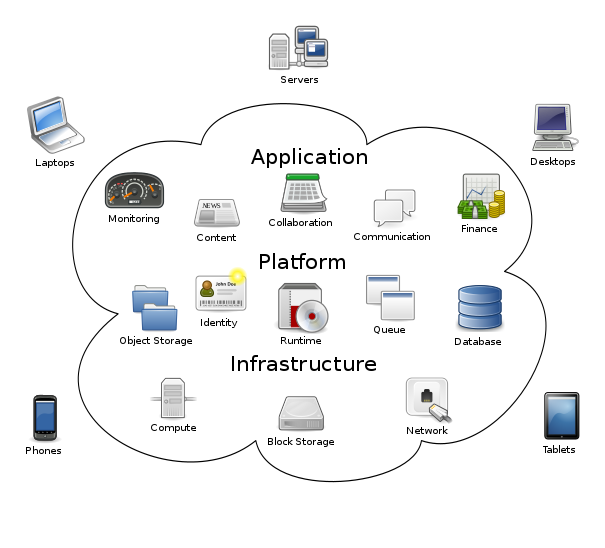Monday, October 11, 2010
Cloud Computing: Is there a threat?
During the LinuxFestJo event last Saturday, I had a chat with Noha Salem, an Egyptian Googler, about Google's upcoming agenda and future plans for the IT industry. Everything she said was pretty interesting, until she reached the issue of cloud computing. She argued that cloud computing is certainly the trend of the future, which is somewhat true. However, what raised my suspicions was when she claimed that the cloud is going to totally, but slowly, replace the desktop, to the extent that desktop applications will slowly become obsolete and unsupported over time. This this is where I'd like to declare my stance against Google, and/or any other company, firm or organization which adopts such views for the future of computing.
Perhaps the most sensitive aspect in the issue of cloud computing is the issue of privacy and personal security. Personally, I have no idea how storing all my personal data and personal files (images, documents, audio and video stuff) on some server located somewhere on another continent can be even remotely as private, safe and secure as storing them on my personal machine and then sharing them with the world as I wish. The irony is that when I tried to tell Noha that there will be many people who will refuse to place all the personal stuff on the cloud, her only response was something like: "Oh, of course there will be a great consideration for personal preference!". But then, how is there going to be any kind "relevant" personal preference when the ability to store files and data on a completely isolated machine will not be available anymore? In my opinion (please correct me if I'm wrong), cloud-hosting service providers can brag all they want about the levels of privacy and security they provide, but the fact remains that the cloud will never be even half as trustworthy, when it comes privacy and security, as the desktop.
Another critical issue about cloud computing has to do with the fact that internet speeds vary from one country/region to another. Here in Jordan, for example, internet speeds could barely exceed 10mbps (which, by the way, is not even remotely affordable by middle class citizens). However, in other regions in the Arab world on the other hand, such as the UAE, internet speeds reach as high as 30mbps, especially with the new eLife service provided by Etisalat. Moreover, what about those who can't afford an internet connection altogether? You're not trying to convince me that we'll have completely defeated the entire world's poverty by the time the cloud computing trend takes the lead, are you?
Conclusion, it's not that I'm totally against cloud computing. Of course not. I actually think it's a great technology; but I am, however, against the idea of total migration to it, to the extent of totally flushing the desktop down the toilet. I believe that balance is always the best thing to do.
Subscribe to:
Posts (Atom)

